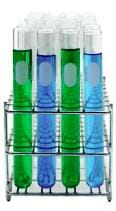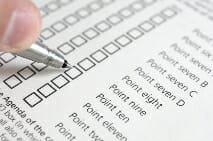I know you want to go straight to your bipolar online test . . . BUT there really is some ESSENTIAL information about bipolar disorder you should know first!
Please slow down and read the following 3 quick simple points:
1.NO test can diagnose. ALL the tests in use today – online or otherwise – are BIPOLAR SCREENING tests, meaning all they do is check if you are at risk and need further assessment.
2. You cannot detect bipolar disorder through the Internet. No ifs, buts or maybes.
It is hard enough to get a reliable diagnosis in person.
3. That being said, in addition to the online test we provide, links to the other three best available online tests appear at the end of this page.
All are free, all have been clinically validated, and all are used every day by expert psychiatrists.
So why bother with an online test? These online tests are based on reliable and professional bipolar disorder tests. They are questionnaires on bipolar symptoms that have been developed by leading clinicians.
Part of being diagnosed for bipolar is to take this sort of bipolar self-test, whether online or at a psychiatrist’s office.1
Just remember – this Online Bipolar Test page contains a tests for screening purposes only. You must see a doctor ASAP if you screen positive!
I cannot stress this enough – NO bipolar disorder test is 100% reliable. There is not (yet) a conclusive physical test such as a blood test or brain scan that would be more reliable. To date, the most reliable method is undergoing a diagnostic evaluation with a psychiatrist or psychologist.
Here is your online bipolar test
Check through the following 32 bipolar signs and symptoms, counting “1” for each “yes” if you have experienced this for a period of at least 4 days:

- I need less sleep.
- I feel more energetic and more active.
- I am more self-confident.
- I enjoy my work more.
- I am more sociable (make more phone calls, go out more.
- I want to travel and/or do travel more.
- I tend to drive faster or take more risks when driving.
- I spend more money/too much money.
- I take more risks in my daily life (in my work and/or other activities).
- I am physically more active (sport etc.).
- I plan more activities or projects.
- I have more ideas, I am more creative.
- I am less shy or inhibited.
- I wear more colorful and more extravagant clothes/make-up.
- I want to meet or actually do meet more people.
- I am more interested in sex.
- I am more flirtatious and/or am more sexually active.
- I talk more.
- I think faster.
- I make more jokes or puns when I am talking.
- I am more easily distracted.
- I engage in lots of new things.
- My thoughts jump from topic to topic.
- I do things more quickly and/or more easily.
- I am more impatient and/or get irritable more easily.
- I can be exhausting or irritating for others.
- I get into more quarrels.
- My mood is higher, more optimistic.
- I drink more coffee.
- I smoke more cigarettes.
- I drink more alcohol.
- I take more drugs (sedatives, anxiolytics, stimulants).
If you scored 14 or above (i.e. answered “yes”), then you have a positive screen for mild, moderate or potentially “Bipolar I” style mania.
(This test is the Hypomania Checklist (HCL-32) and has shown over 80% reliability in identifying bipolar disorder. The most common misdiagnosis of bipolar disorder is to mistake it for depression and the HCL-32 is particularly useful in distinguishing bipolar disorder from depression.)
Interpreting your bipolar test(s)
Your results will make more sense if you understand the following “bipolar basics”:
Bipolar is about mood swings, and includes mania AND in most cases, depression. Some people do not experience depressive episodes and only go in and out of manic episodes, but episodes of depression are common.
Ask yourself these 3 critical threshold questions on bipolar symptoms first to check you have the THE UPS, THE DOWNS, and the ‘in between episode periods that characterize bipolar disorder:
1.Have you had any significant depression that lasted at least 2 weeks and was so severe it made it difficult or impossible to function?
2. Do you experience ‘ups’ as well as ‘downs’ or just the ‘ups’?
3. Are your ups ‘wired’ or ‘hyper’ – and not necessarily ‘happy’?
If you answered “YES” to these 3 questions, then you may consider a screening test for the possibility of mania.
That is, the point of screening is to check if you have the typical symptoms of mania such as racing thoughts, disrupted sleep, out of control spending, or sexual promiscuity or other impulsive “risky” behavior.
Usually the higher the score, the more likely it is you have experienced episodes of mania (Bipolar Type 1) or hypomania (Bipolar Type 2).
This is just the beginning – it is NOT a final diagnosis.
Remember, according to the experts:
“Accurately diagnosing Bipolar Disorder is often not a straightforward matter. Many people go 10 years or more before their illness is accurately diagnosed as Bipolar Disorder.” (Black Dog Institute)
To recap: There are 3 things your online bipolar test must show for a positive self-screen that suggests the possibility of bipolar disorder:
1. You may have experienced serious depression for at least 2 weeks, AND
2. You must have scored positive for mania, AND
3. Your symptoms must have resulted in a significant negative impact on your life such as financial problems, legal troubles, or serious issues in your job, relationships and ability to function.
If you did screen positive, see a medical expert. You must be diagnosed through an face-to-face interview. You cannot draw any conclusions from a bipolar online test which is a SCREENING TEST ONLY!
(A screening test means it checks for possible symptoms but does NOT provide a diagnosis!)
If you screen positive for bipolar disorder, see a board certified psychiatrist ASAP.
DO THIS after taking your test

Stay awhile and visit!
Taking a bipolar online test is just the first step.
You have some important work to do:
1. Learn more about bipolar symptoms.
2. Get real and get honest. Do you show any bipolar behavior?
Suggested bipolar self screens
A good bipolar online test is available from The Black Dog Institute, an Australian research institute dedicated to mood disorders.
See their excellent Mood Swings Questionnaire.
They also provide this excellent Fact Sheet on self-testing for bipolar disorder.
US testing vs UK (NHS) bipolar testing
The diagnostic criteria for bipolar disorder is different in the UK from what is used in the US. Americans use the DSM-5, but the National Health Service (NHS) uses ICD-10. It is the 10th revision of the International Statistical Classification of Diseases and Related Health Problems, a medical classification list by the World Health Organization (WHO). You are more likely to test positive for bipolar in the UK because the diagnostic criteria for bipolar disorder is broader.
Bipolar spectrum tests
Discover tests for Bipolar Type 2 and “soft” bipolar such as the MDQ and BSDS.
“I didn’t like the diagnosis. I couldn’t believe the psychiatrist told me that. I just thought it was because he was lazy and didn’t want to treat me. Then I overdosed at 28, at which point I began to accept the bipolar diagnosis.” Carrie Fisher
References:
 Medically reviewed by
Medically reviewed by
6 Comments
I am 58 years old, diagnosed with bipolar when I was 21 years old. I have put myself in harm’s way 8 times in my life, but have also excelled at school (engineer) and sports (not girls, I am quite shy). BUT…I cannot STAND the terrible, unpredictable lows AND highs.
I have been in counseling forever. I want to get OUT. I want to ditch my wife and live in the country alone. My question, “Is living alone a good idea?” I don’t want to be happy and I don’t want to be sad. I want to be CALM. Will it work?
I’m 14 and a female and I have experienced extreme anger problems and extreme mood swings, usually I can control it but I tend to lose control and physically end up hurting someone or something, I have not been diagnosed bipolar or diagnosed with any mood disorders but for the last 5 tests that I have taken they all have said that I am either bipolar or on the verge and recommended me to go see a therapist but I don’t want to trust the internet For such a serious situation, keep in mind my anger gets physically out of control i just want an opinion on if I should go seek help
Jordan – yes, you should seek help from a counselor. Some amount of moodiness in teens is normal, however violent, aggressive, or out of control rage is not.
I’m 14 this year and I have been through a lot; I have been having high days and very low ones. I’m at a loss at what to do. I have asked for help and a therapist but I have been denied both. I have done many tests and on both bipolar and depression but I still don’t know what to do. I really need some help and calcification. thanks
Hi , I am bewildered about the complexity in diagnosing bi-polar disorder.
I have been diagnosed with affective bi- polar disorder approximately 15 years ago.
I can never accept the fact that the validity behind the diagnosis is true.
I firmly believe that bi- polar disorder is the result of trauma suffered in the early stages of childhood development.
As a result due to a child not having the intellectual understanding of their own understanding of his or her emotions.
The second phase is blocking sub conciously the traumatic event and as a result the brain adjusts unquiely depending on the biological predispositions of an individuals brain or proto plasm.
Chemicals within the brain are ultered as a result , henceforth the imbalance and bi – polar is formed.
The key is CBT to ascertain the trigger of the trauma and empowering an individual to have the courage to innately redress the emotion and feelings sub- conciously withdrawn from over an extended period of time.
Some individuals I believe become manic from running from the triggering event and for others are the anger and frustration leads to depression.
This can vary depending on everyday life events and a persons capacity to adjust to such events
In summation yes I agree with the neurological indicators depicting a person suffering from bi-polar .
But I also believe that once the extent of the traumaric event is understood emotionally that a person overtime can recovery if the brain is nurtured and no damage has been caused by alcohol and pharmaceutical drugs.
Fragonia is a natural medicinal plant from the S.W. of Western Australia it ia a nervine and is benefical to sufferers experiecing mania if managed by a qualified herbalist.
I find being diagnosed with bipolar is difficult. I was diagnosed with depression, psychosis, a Personality Disorder before I paid for a psychiatrist private and she then diagnosed me with Bipolar Disorder.